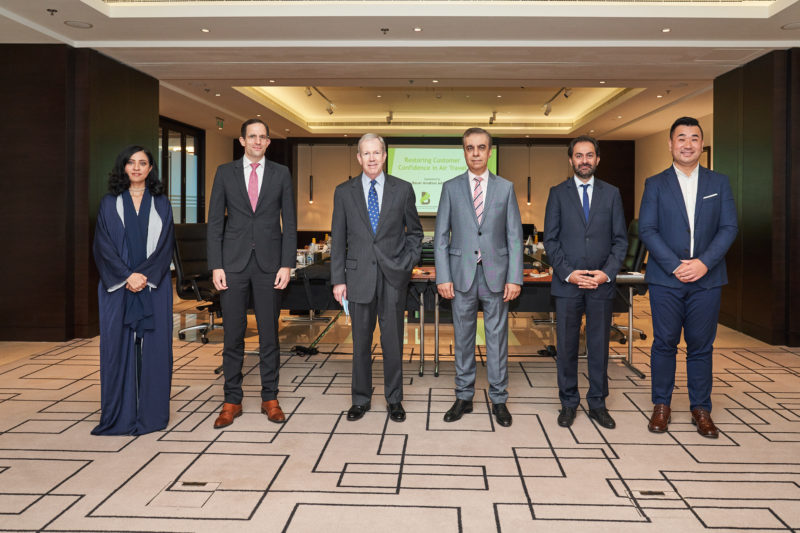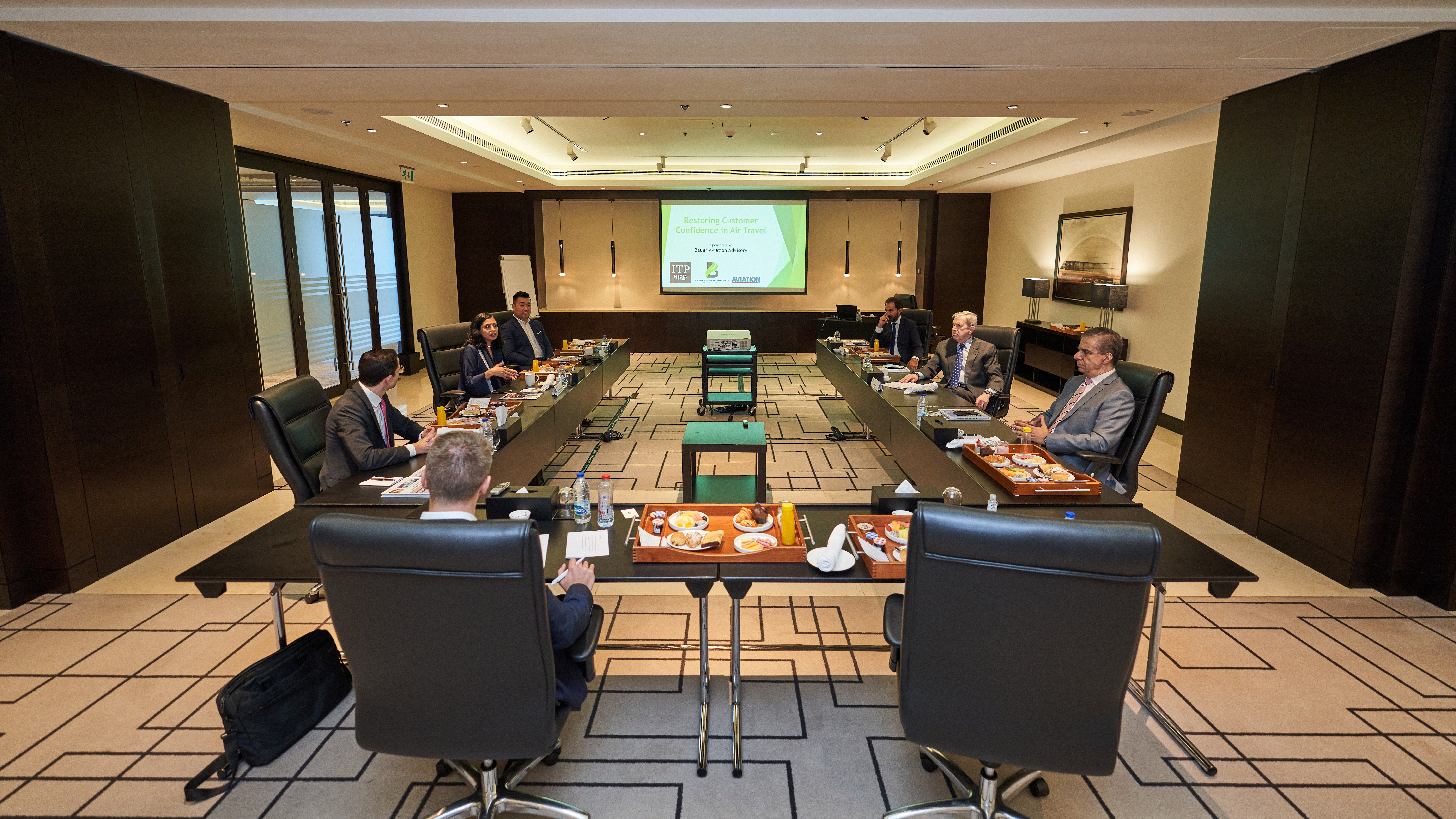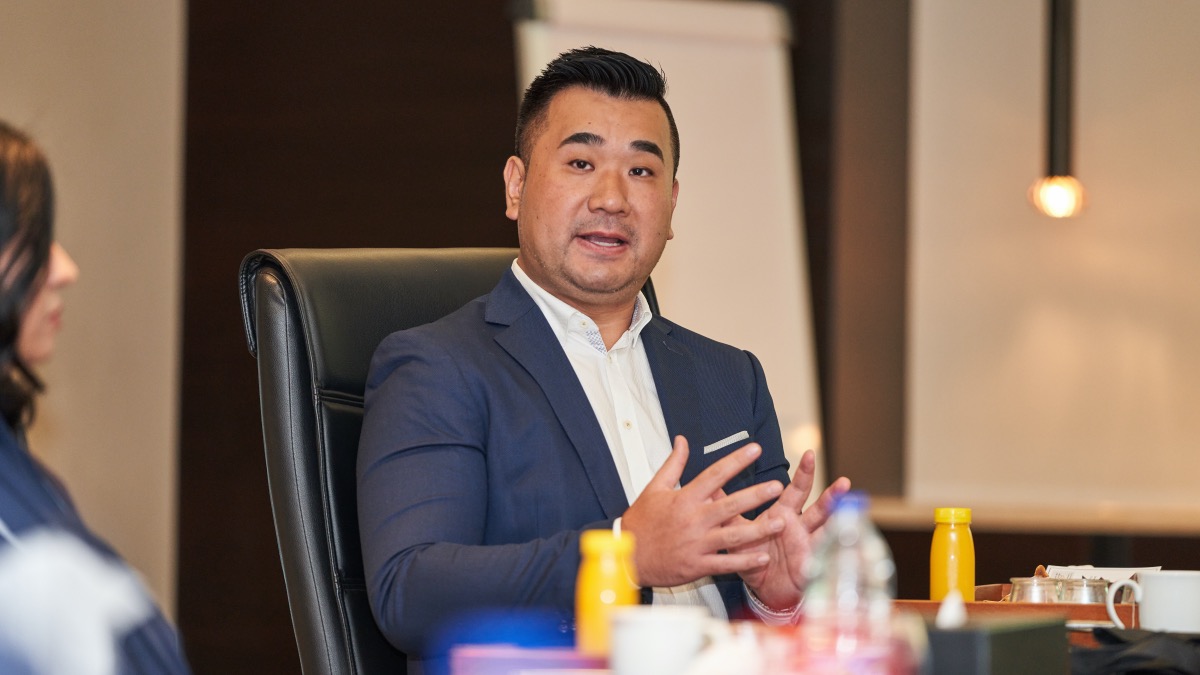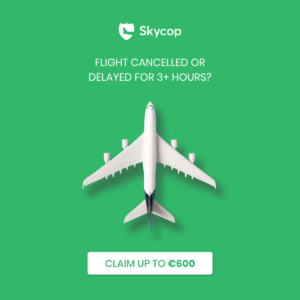The aviation industry is still reeling from the devastating effects of the pandemic, causing widespread uncertainty. Many governments, across the globe, are still struggling to develop robust COVID-19 strategies; with borders still closed and travel restriction in place, the recovery process for kickstarting long-haul travel is slow to get started. Thus, the serious struggle to boost customer confidence in air travel, during these challenging times, is very real.
Roundtable Event in Dubai
In order to spark debate in the industry, and to encourage aviation businesses and regulators in the region to start communicating with each other and take more action, with a mind to accelerating the industry’s recovery, the Aviation Business Middle East’s roundtable event, with some of the brightest minds and most influential figures in the Middle East’s aviation sector, took place in Dubai recently. The event was sponsored by Bauer Aviation Advisory and the wrap up video can be found on Youtube.

Along with Sam Chui and the Managing Director of Bauer Aviation Advisory, Linus Benjamin Bauer, the following key people from the industry took part in the roundtable event: Laila Hareb (Fmr. Executive Director of the Civil Aviation Authority UAE), Adel Ali (CEO of Air Arabia), Bernie Dunn (President of Boeing Middle East) and Georges Fenergi (Vice President of SITA).
The event formed a key part of the industry debate on how the aviation sector can best recover; it is apparent that restoring customer confidence is going to be the key to recovery. Whether that means investing in hygiene solutions, creating marketing initiatives or lowering air fares, each OEM, airline and airport is currently exploring various different strategies. However, the market remains inconsistent in its approach and there is a danger that this inconsistency could frustrate the industry’s recovery.

How to Restore Customer Confidence in Air Travel?
Let us focus on the three following key questions, which were all discussed in great detail during the roundtable event:
Q1: What are the most effective strategies aviation companies can employ to boost passenger confidence, thereby accelerating the industry’s recovery?
The key to boosting passenger confidence is the implementation of a solid pre and post flight testing protocol.
The integration of COVID-19 testing into the passenger flow, during the airport journey, would help reassure passengers at a time when health and safety are a primary concern. According to the IATA’s recent survey, 88% of people are willing to undergo testing as a part of the travel process; even if the COVID-19 testing would also reshape the security experience at airports worldwide.
Travellers will likely be spending more time at the airport during the pandemic (3-4 hours before long-haul flights), thus they will be looking to research, plan their journeys and pre-book their services before leaving home. Due to the change in customer behaviour, the entire Customer Journey has to be redesigned with the help of technology. Through the application of customer-centric strategies, the customer’s needs, wants and communication preferences has to be put at the centre of the buying process.
Pricing is not the key in the rebuilding process of air travel confidence.
This is because the people who have the motivation to fly, during the pandemic, will also have a higher willingness to pay a premium for the ticket, therefore also the ancillary products with safety- and health-related benefits.
Q2: How well are companies communicating their ‘confidence-boosting’ messages to consumers? Should OEMs, airlines, airports and private aviation firms be more consistent in their messages?
More consistency is needed to drive trust – not just in messaging but in actions. Initially, airlines were prioritizing safety and reassuring messages; as countries have opened most have turned their attention to promoting their expanding route networks, rather than consistently highlighting the steps they’re taking to ensure passengers remain safe onboard.
The IATA and the ICAO have been most consistent in the past few months. The ICAO launched their CART Report ‘Take off: Guidance for Air Travel through the COVID-19 Public Health Crisis’, a global standard framework of risk-based temporary measures for air transport operations amid the pandemic. The IATA introduced a roadmap of biosafety for air transport, to ensure that air travel does not spread COVID-19.
It’s not just saying, it’s doing that will drive confidence among consumers. For example, it has been widely reported that aviation industry executives have said that airline passengers want visible plastic barriers in the Economy Class cabin; also that passengers do not entirely trust industry assurances about high air quality onboard.
A coordinated approach is needed between airlines, airports, OEMs and other stakeholders.
Cases are rising, travel restrictions remain and economic challenges are deterring people from travel. The industry globally shares a huge challenge and should set aside competition; instead the industry should rally around a multi-channel campaign, one that targets governments and consumers. The campaign should address the three main issues impacting travel: easing travel restrictions, rapid testing and promoting visible safety changes during the travel journey to provide reassurance.
Q3: What can governments and aviation regulators in the Middle East from their side to encourage more people to fly?
The governments and aviation regulators need to make a shortcut in the entire learning process, by looking back to security coordination in the wake of 9/11.
At the beginning of 9/11, every country was looking after their own and implementing their own protocols. 9/11 was for the security officials, COVID-19 is for the health officials; however, it can not be ignored that the optimization of the security processes, after 9/11, quickly restored customer confidence in air travel. Thus the sharing of knowledge, and the lessons learned from 9/11, within the medical community is essential, in order to develop an international framework for implementation of international testing protocols at airports.
Hand-in-hand with the Middle East’s aviation sector, they must not agree to live with the current patchwork of travel bans and quarantines; it has to be very clearly communicated to other governments across the globe. COVID-19 started as a health crisis, but it has quickly evolved into a social crisis in many parts of the world; this has to be very clearly communicated to the governments and media. At the end of the day, up to 57m jobs worldwide depend on the aviation industry.
Final Words
After the fruitful and insightful roundtable discussion, all the participants came to the conclusion that confidence in air travel will return; however, airlines, airports, OEMs and regulators must be consistent in their communications and strategies in order to restore air travel worldwide.
It will take a combination of vision, creativity, compromise, commitment, discipline, operational acumen and leadership, along with the implementation of continuous precautions.




